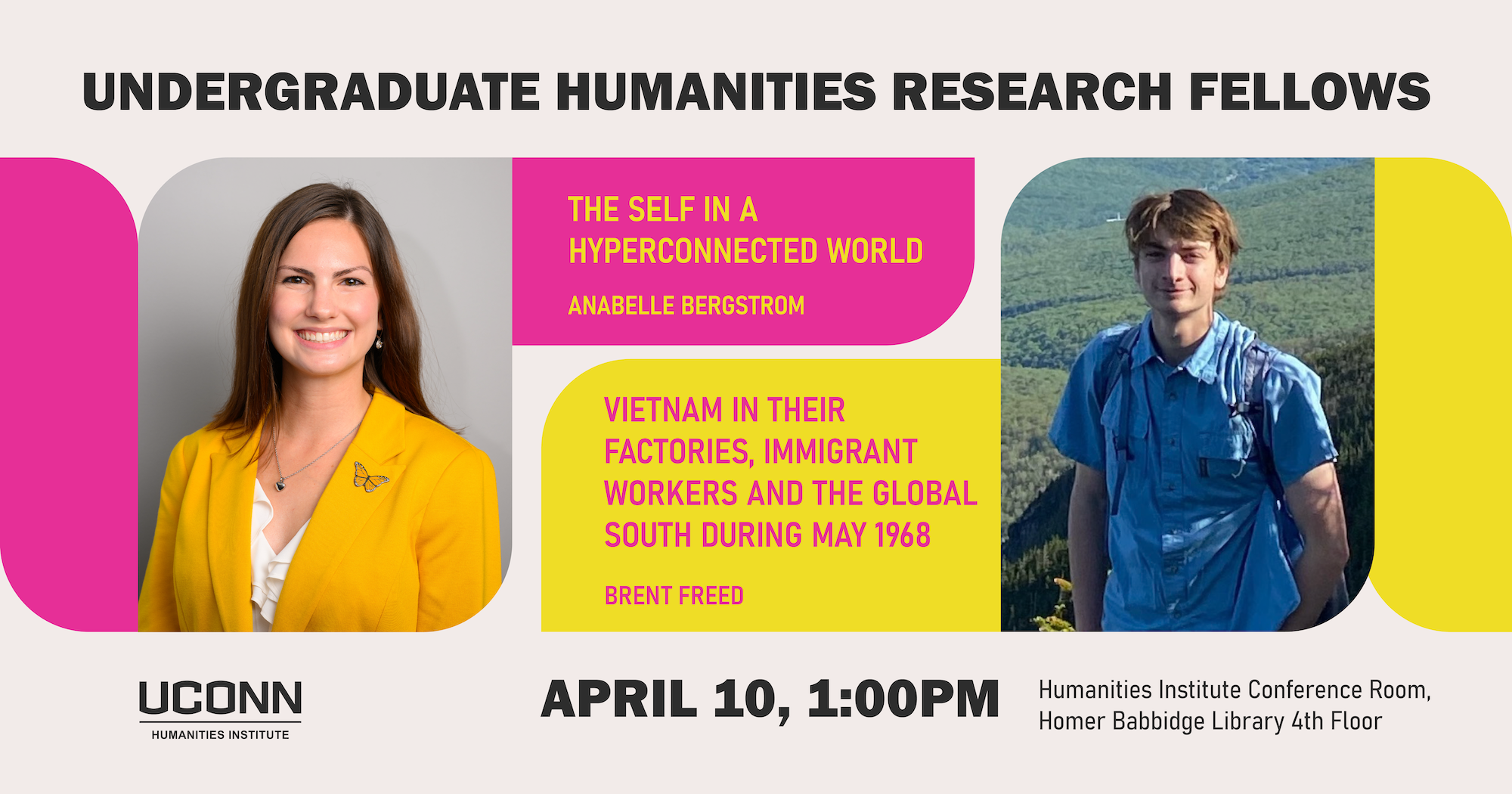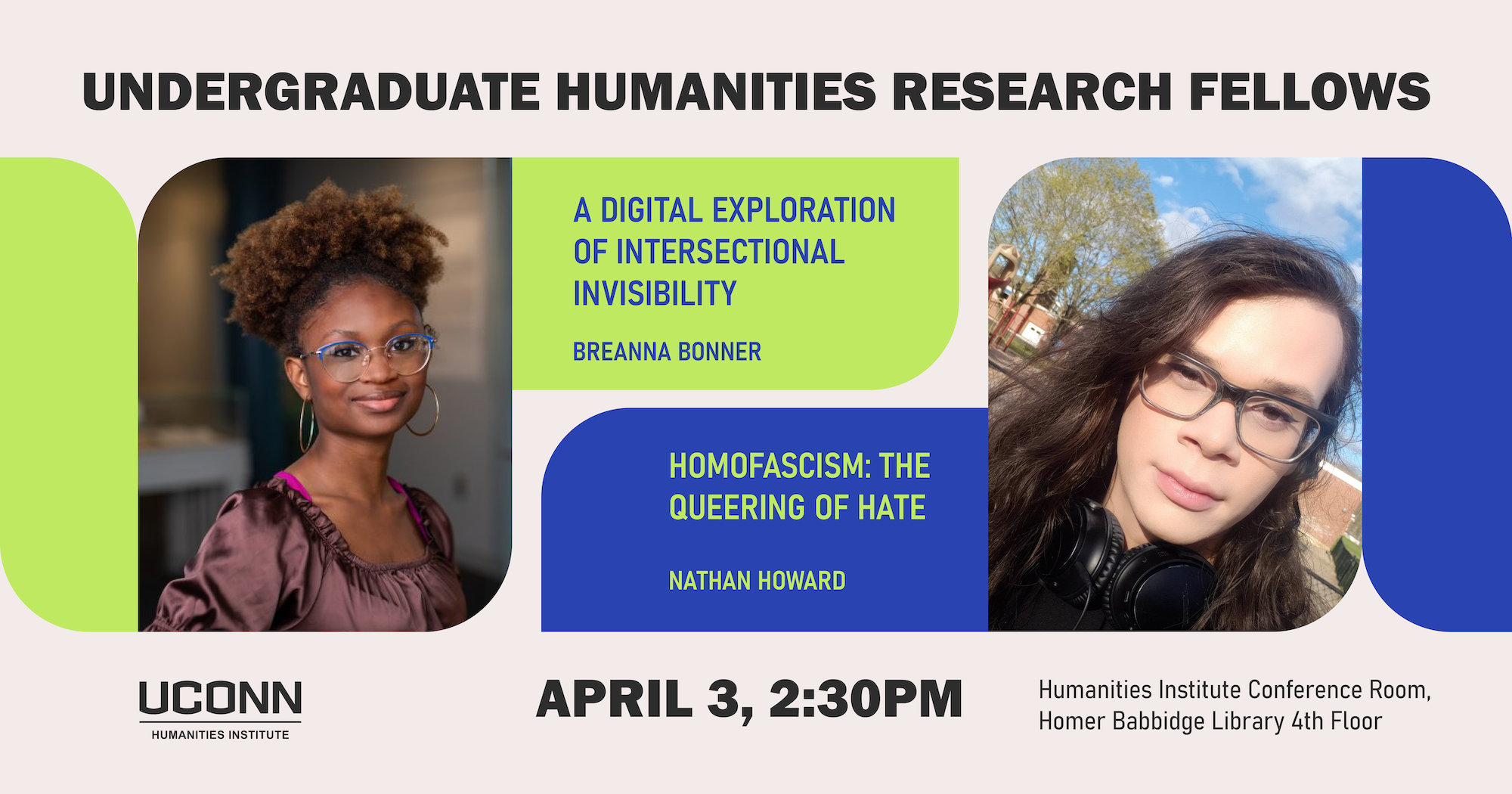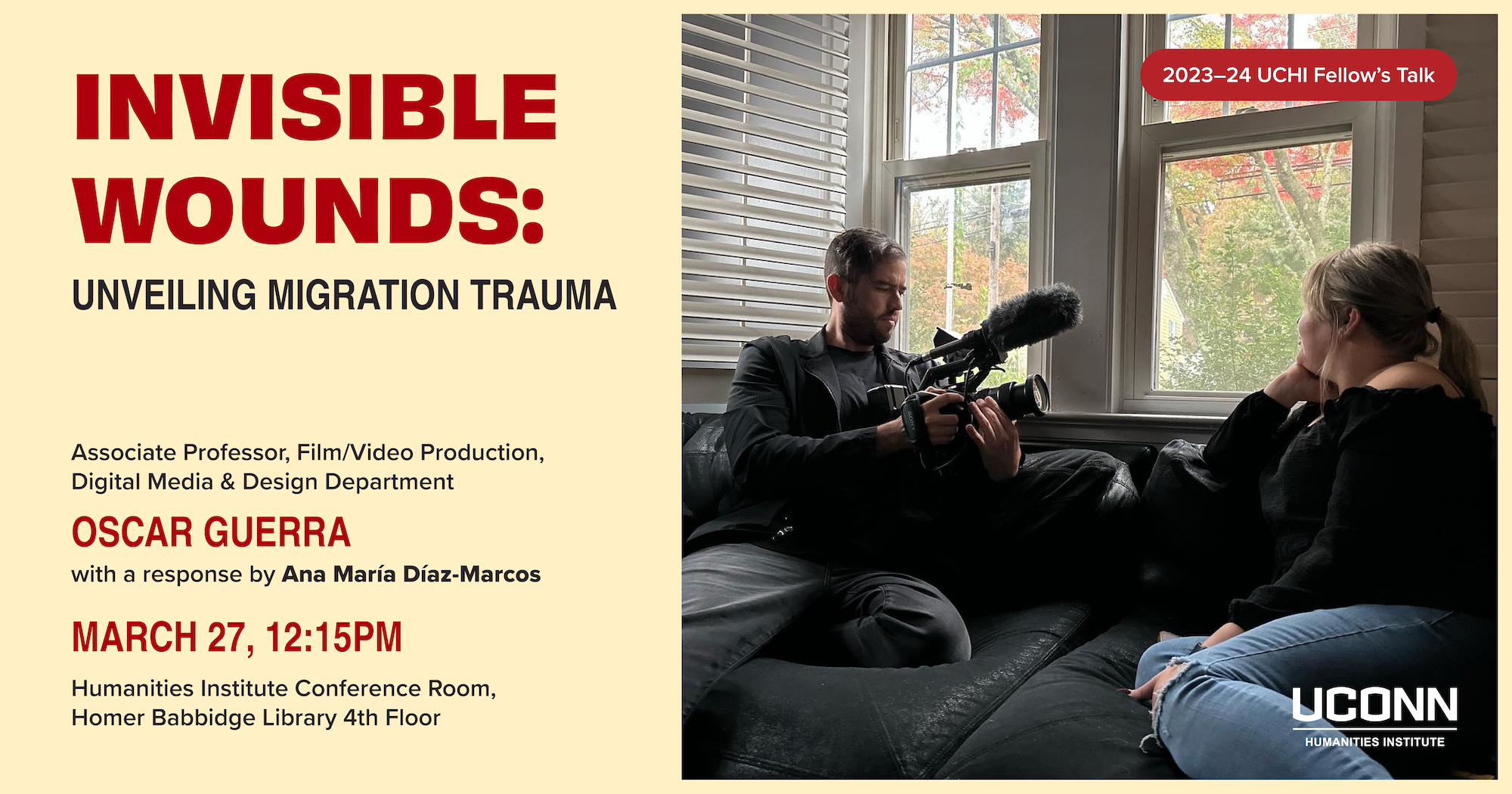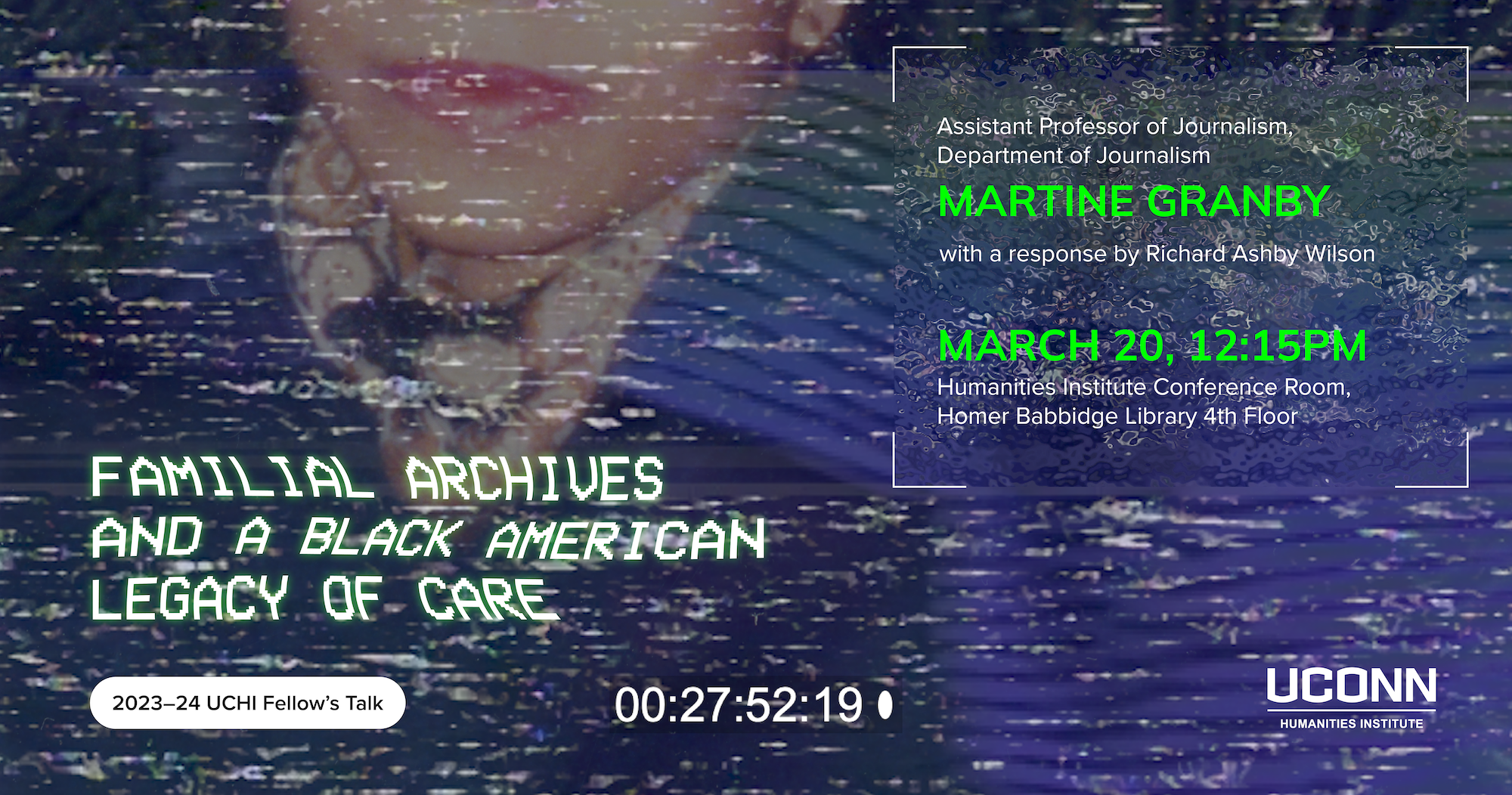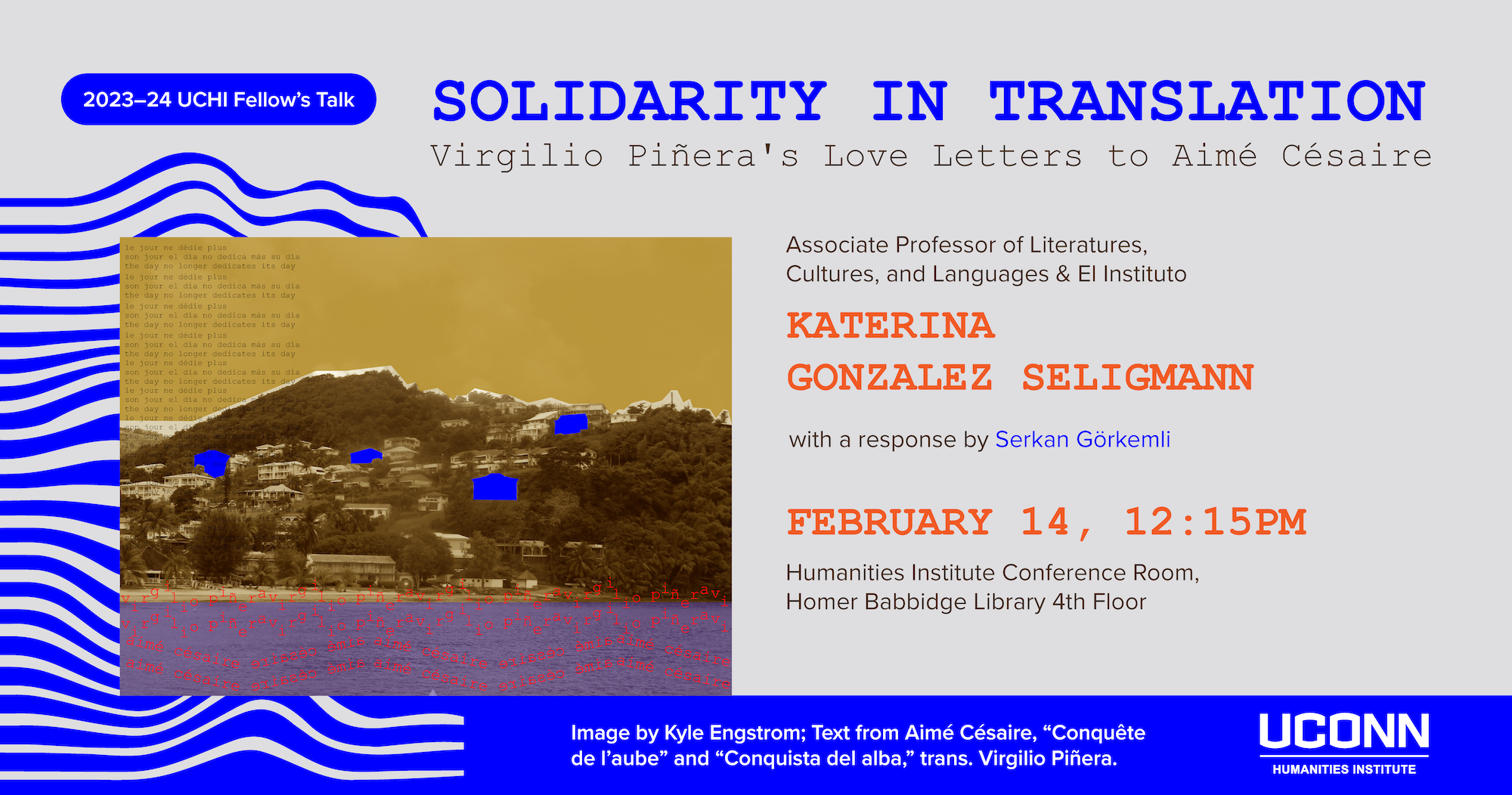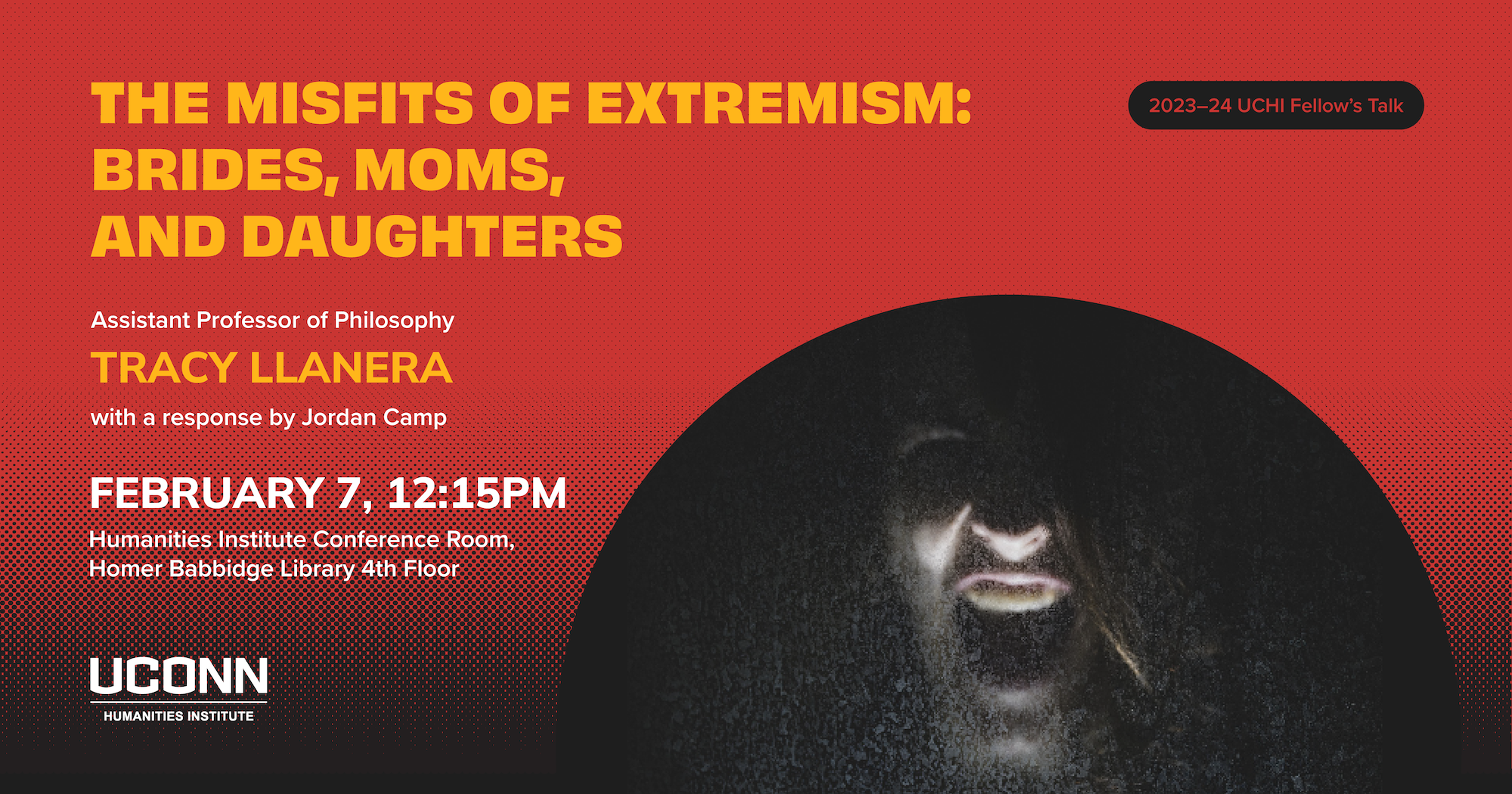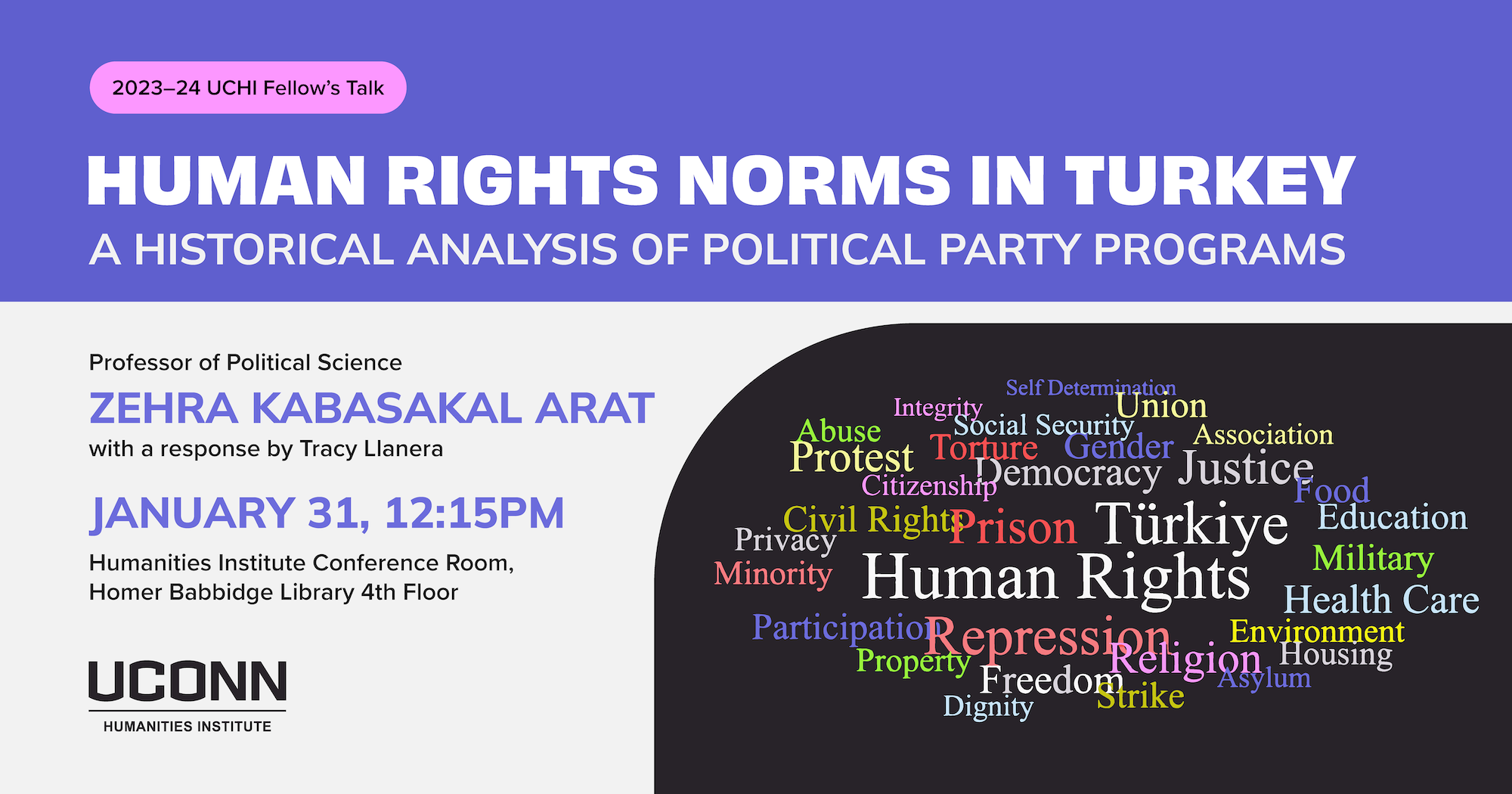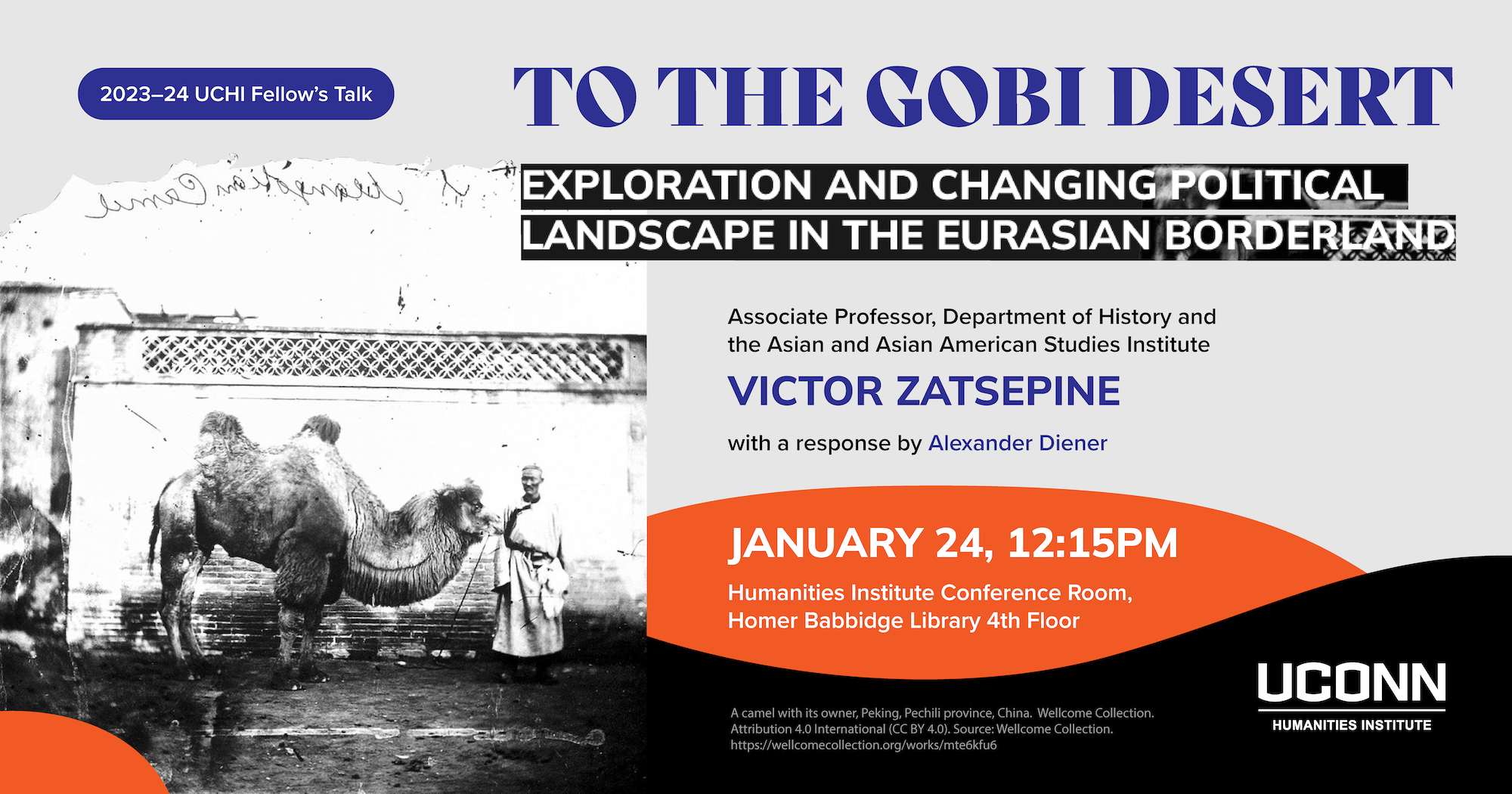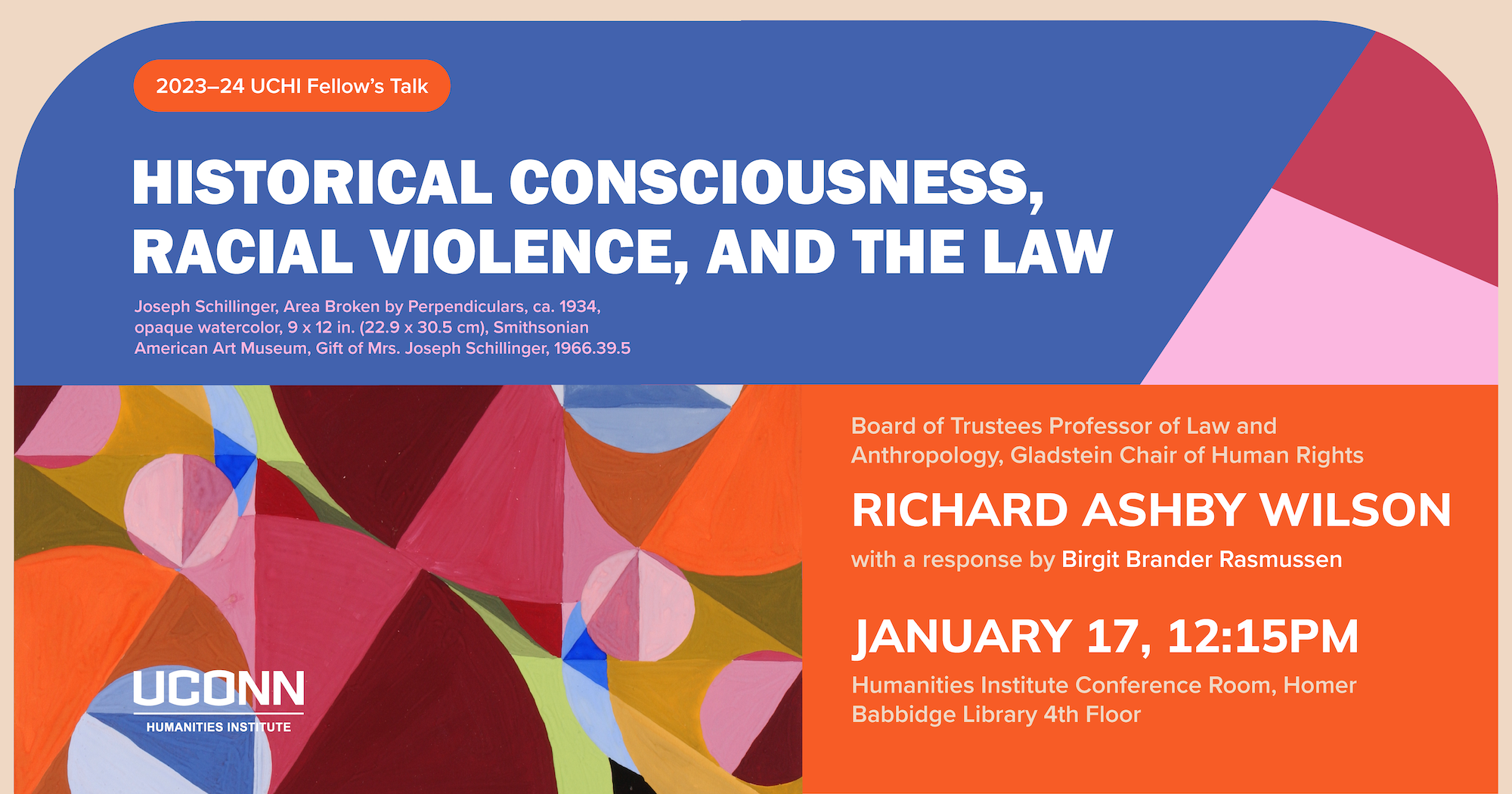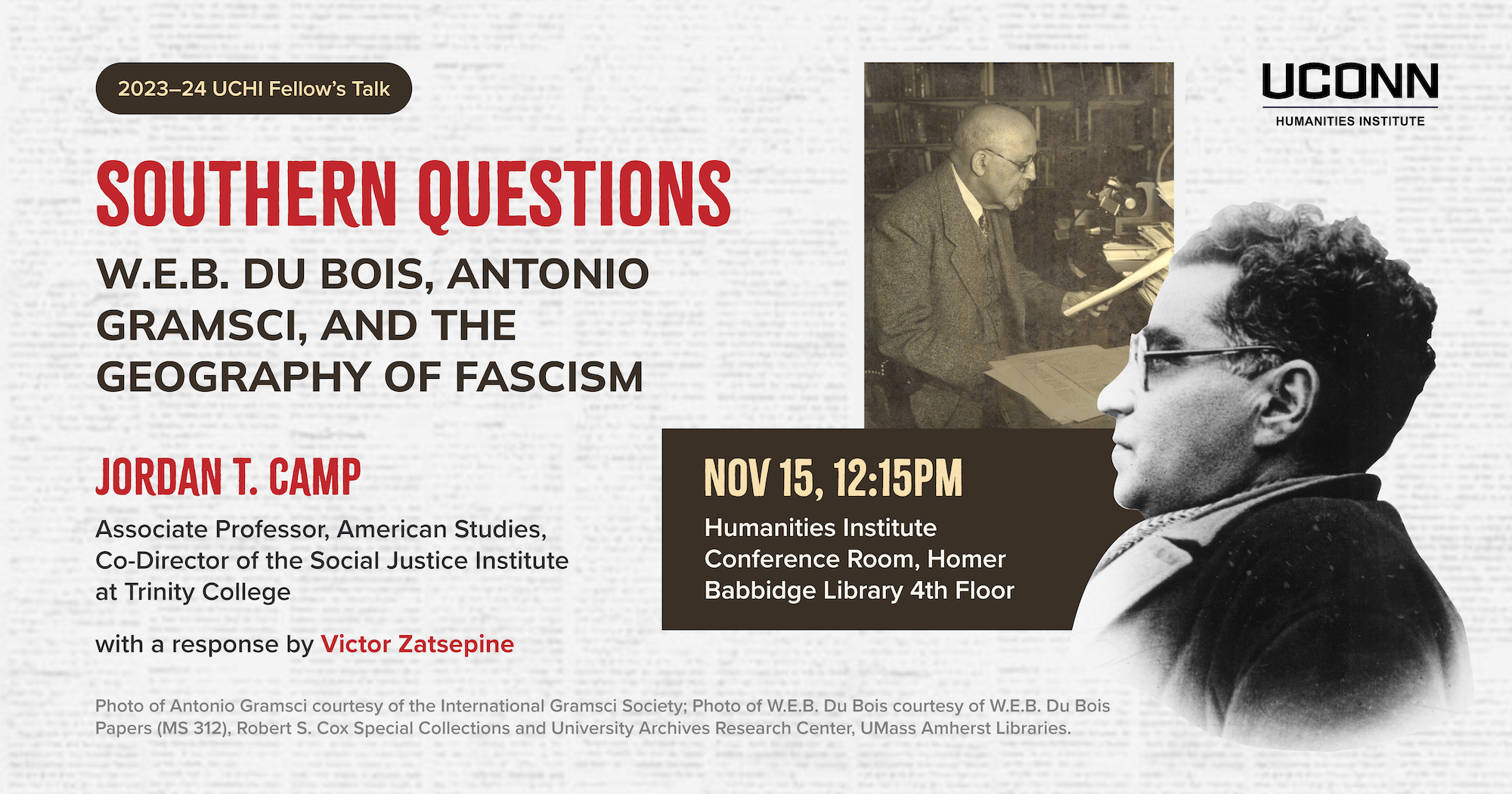Undergraduate Humanities Research Fellows
Anabelle Bergstrom, “Minds Among Minds: The Self in the Hyperconnected World”
and Brent Freed, “Vietnam in their Factories, Immigrant workers and the Global South during May 1968”
Wednesday April 10, 2024, 1:00pm, Humanities Institute Conference Room (HBL 4-209)
The event will also be livestreamed with automated captioning.
Undergraduate Humanities Research Fellows Anabelle Bergstrom and Brent Freed will present on their fellowship projects.
“Minds Among Minds: The Self in the Hyperconnected World,” Anabelle Bergstrom
“Minds Among Minds: The Self in the Hyperconnected World” seeks to examine how modern modes of connectivity such as social media affects identity and authenticity. By drawing on William James’ three constituents of the Self, the project makes bold claims about the impact the online world has on narratives of the Self. It also attempts to acknowledge and remedy the growing gap between the online and analog worlds.
“Vietnam in their Factories, Immigrant workers and the Global South during May 1968,” Brent Freed
This talk will examine Kadour Naïmi’s memoir Freedom in Solidarity: My Experience with the May 1968 Uprisings. Naïmi, the son of an Algerian immigrant, was a college student in Paris during the spring uprisings in 1968, and his connection to three different important groups of actors in the 1968 uprisings—students, workers, and immigrants—provides a unique window into what relations looked like between these groups. Naïmi’s memoir will be used to explain both the roles of immigrants during the spring riots as well as how anti-colonial ideas were discussed alongside the treatment of immigrants in France.
Anabelle S. Bergstrom is a junior majoring in political science and philosophy with a minor in public policy. Anabelle is a member of the Honors Program, Special Program in Law, BOLD Women’s Leadership Network, and is a Undergraduate Research Fellow for the UConn Humanities Institute. She also works for the Office of Undergraduate Research as a Peer Research Ambassador. After finishing her undergraduate degree, Anabelle plans to attend law school and pursue a career as a legal professional.
Brent Freed is a junior pursuing a double major in History and Statistics. A native of Connecticut, he grew up just 20 minutes away from UConn’s Storrs campus. His main areas of studies include 1960s counter-culture movements and student protests.
Access note
If you require accommodation to attend this event, please contact us at uchi@uconn.edu or by phone (860) 486-9057. We can request ASL interpretation, computer-assisted real time transcription, and other accommodations offered by the Center for Students with Disabilities.
